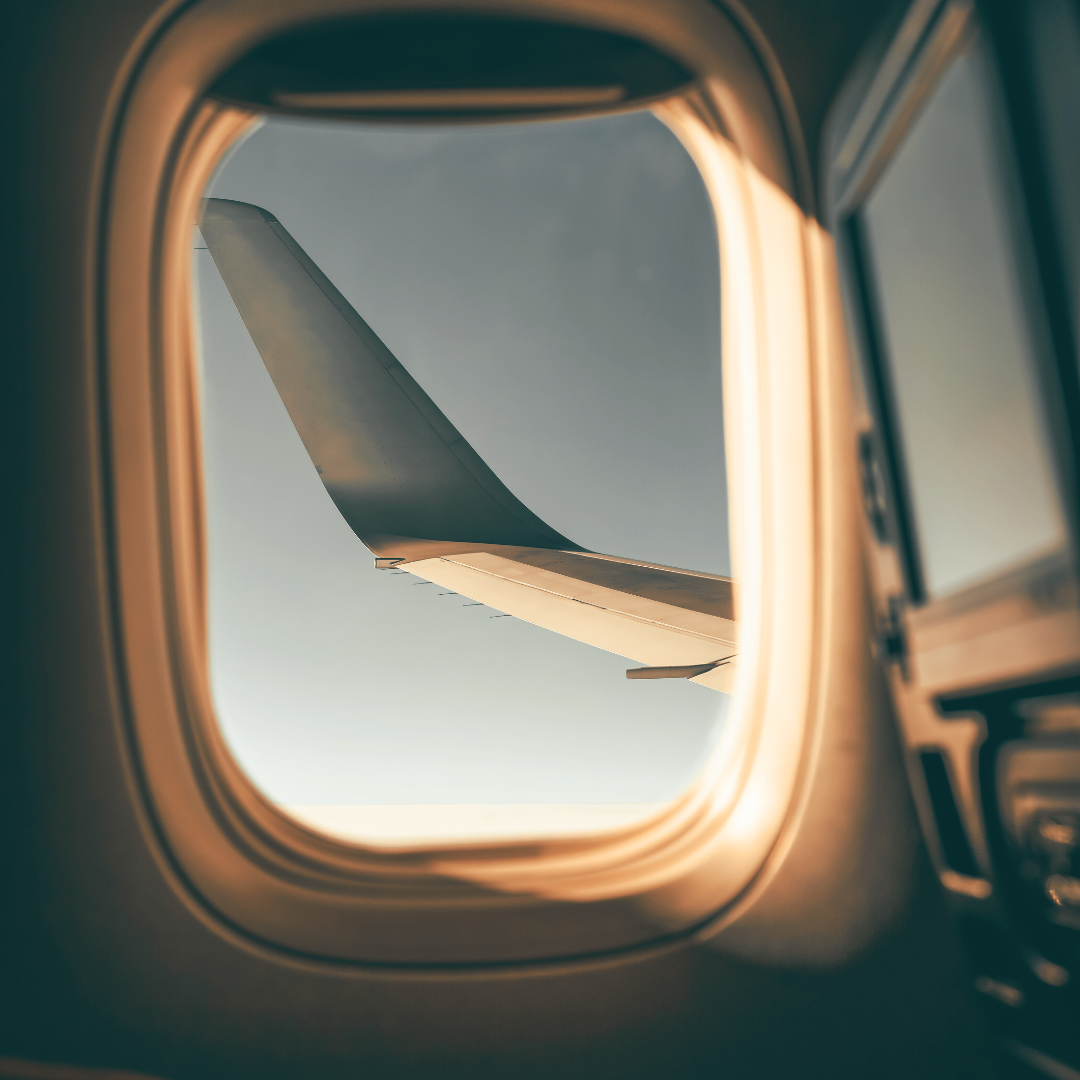Reading time: 7 minutes
Prevent jet lag: 10 practical tips for your trip
Which way is jet lag worse?
Anyone who thinks that the length of your flight determines the severity of your jetlag is mistaken. The real problem lies in the number of time zones you cross and the direction of your flight.
You will suffer more from jet lag on a flight from west to east (for example from Amsterdam to Bangkok) than on a flight in the opposite direction (such as from Amsterdam to New York).
Flights from north to south, or vice versa, usually do not affect your biological clock. Although it is almost impossible to completely avoid jet lag , there are several clever tricks that can help you get into the rhythm of your destination more quickly.
1. Adjust your sleep schedule in advance
Before you leave, start by adjusting your sleep schedule.
Try to gradually shift your bedtime and wake-up time to your destination's timetable a few days before your departure. This will help your body adjust slowly and reduce the shock of the time zone change. By preparing your internal clock, you will reduce the chance of jet lag .
2. Stay hydrated during your flight
Airplanes are often dry, which contributes to fatigue and discomfort.
Drink plenty of water during your flight to avoid dehydration. This will not only help keep your skin hydrated, but will also reduce the chance of jet lag.
Avoid caffeine and alcohol , as these worsen dehydration and can disrupt your sleep.
3. Eat according to local time
During your flight and upon arrival, it is useful to time your meals according to the local time of your destination.
On the plane and the first day, choose light meals that will support your energy levels without taxing your digestion.
This helps your internal clock adjust to the new schedule more quickly and reduces the impact of jet lag.
4. Use a sleep mask and earplugs
To help you sleep deeper and uninterrupted: use a sleep mask and earplugs during your flight and/or in your accommodation. This creates a calm sleeping environment and reduces the influence of light and noise, which in my opinion is essential for a good recovery after a long flight.
5. Keep moving during the flight
Get up and move around the aisle regularly to improve circulation and reduce stiffness. Don't feel bad about disturbing the person next to you (plan it to coincide with your bathroom visits).
Short stretches can also help keep your energy levels up. Exercise not only helps with fatigue, but can also improve your mood and alleviate the symptoms of jet lag.
So even if you have a stopover: keep moving!
6. Exposure to light
Natural light plays an important role in resetting your internal clock .
Spend time in the sun in the morning to boost your circadian rhythm .
Avoid bright light in the evening to prepare your body for sleep. This helps your body adjust to the new schedule faster and reduces the symptoms of jet lag.
7. Short power nap
If you arrive and feel exhausted, take a short power nap of up to 20 minutes.
This can help restore your energy levels without disrupting your sleep patterns. Make sure you don’t sleep too long or too deeply, so you don’t disrupt your sleep and fall asleep more easily at night.
8. Essential oils
Essential oils such as lavender and eucalyptus help with relaxation and improve sleep.
Use a diffuser in your accommodation or apply a few drops to your pillow.
9. Earth therapy
Earth therapy (also called grounding) is very effective in preventing jet lag.
Find a place where you can feel the earth/sand/sea with your bare feet . By making contact with the earth, you release positive ions and receive negative ions, which helps to bring your body back into balance.
A short meditation or yoga session will help further strengthen your grounding and help you adjust to your new time zone more quickly.
Source: A study published in the Journal of Environmental and Public Health supports these findings. The study, titled "Earthing: Health Implications of Reconnecting the Human Body to the Earth's Surface Electrons" by M.E. Gershwin (2013), highlights the benefits of earth therapy.
10. Supplements
Natural Sleep Support
This supplement provides support for your night's sleep.
Dosage: 1 capsule per day before bed.
Power 5 Magnesium
Dosage: 2 capsules per day with breakfast.
Extra tip: Epsom salt for a foot bath, to increase your magnesium levels and speed up your recovery.
Active B12 Complex
Symptoms of jet lag
Jet lag can range from mild to severe, depending on how many time zones you’ve crossed and the direction of your flight. Common symptoms include:
- sleep disorders
- daytime fatigue
- concentration problems
- headache
- irritability
- stomach and intestinal complaints (it may also be nice to take Digestion Complex with you, because your digestion also needs some time to get used to it).
It is important to take these symptoms seriously and implement the tips above to speed your recovery.
How long does it take to recover from jet lag?
Recovery from jet lag usually takes a few days, depending on the number of time zones you have crossed and your own adaptability. By applying the tips in this blog, you can speed up the recovery process and get back to your energetic self faster.
Conclusion
While it’s not always possible to completely prevent jet lag, these tips can help you reduce symptoms and get back into your routine more quickly. By adjusting your sleep schedule, staying hydrated, carefully managing your light exposure, and practicing earth therapy, you can optimize your travel experience and enjoy any destination without the uncomfortable effects of jet lag.
Would you like someone to look with you and make a personal advice tailored to your needs? That is possible! Click here for free advice from our orthomolecular therapist.


